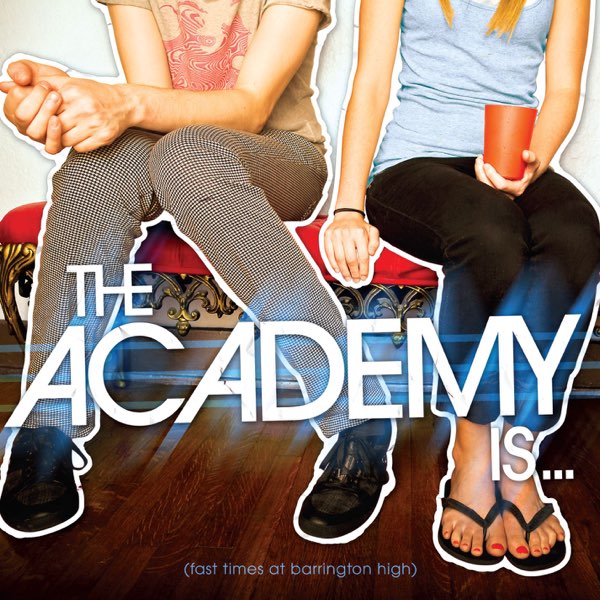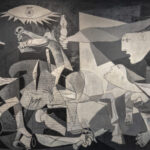After the Last Midtown Show: A Retrospective
Posted: by The Alt Editing Staff

Summer 2022 has just begun, and I’m climbing into my car to meet friends at the lake. I scrabble for the aux cable and put on a particular album, released fourteen years ago, without a second thought. I crank the volume. The record is summer-themed, and it’s the crown jewel of a Fueled By Ramen band who never exactly fit the mold of the genre. I can’t honestly say whether it’s underrated; I don’t often discuss it. After all, the highest-quality music is best enjoyed alone in one’s vehicle. That’s what I decided twelve years ago, anyway.
Of course, it’s impossible to extricate my opinions about the goodness of this album from the sweet personal memories that rush in with the opening notes. We’ve all got our longtime favorites whose very pleasure, especially at the moment the seasons change, derives from the past and present running together. Fast Times at Barrington High is mine.
* * *
Ask anyone to name a pop-punk band from Chicago, heyday 2005, and they’ll probably cite one forerunner. Give them the details—tightly knit, emotional guitar rock; a famously expressive frontman with a wide range and a pretty voice—and they’ll double down on their answer. Rightly so: you can’t talk about 2000’s rock or the pop culture of almost twenty years ago without discussing Fall Out Boy.
I understand Pete and Patrick “discovered” citymates The Academy Is… and brought them to Fueled By Ramen mandarins before T.A.I.’s debut, Almost Here, was recorded. As a seventh-grader, I fell hard in love with Almost Here. I loved Beckett’s voice. I loved the clean snare, the shiny crashes, the guitar tones I associated then with “the Fueled By Ramen sound.” I still do. Start to finish, Almost Here is an incredible album.
As a preteen, I remember reading some interview clip where The Academy Is… cited 70’s rock, specifically Zeppelin, as a major influence. That stunned me. In a music scene that exalted youth and linked it to a very concerted “coolness”—literally, heralded itself as the scene—I would never have expected an up-and-coming band to make citations to so many decades in the past, especially when “elder” status was granted to, say, the Get Up Kids, or Mineral. As far as I knew, nothing had ever existed before the nineties. How could a band going as far back as Zeppelin possibly be part of the conversation?
But the more I listen to Almost Here with aging ears, the better I understand it: risky, expansive, and—Beckett’s beautiful voice notwithstanding—more a rock record than it is pop. Sharp, no-B.S. arrangements adopt a wide range of tempos, feels and dynamics, which is all the more striking when you weigh them against the cookie-cutter trends of the day. More than anything, Almost Here sounds like a band at their best. Every moving part supports and interlocks with every other, often with surprising complexity.
This is why I find Fast Times of Barrington High so captivating. It’s a total departure. Every song is midtempo—a criticism often lobbed at Paramore, and at me, and at about a hundred new wave bands, whether they’re 1980’s proper or synthpop revival. And while there’s some dynamic range on Fast Times, most of the drums are heavy 4×4 with an open hihat or crash. And, unlike several of the selections on Almost Here, every song on Fast Times is structured conventionally. Verse, chorus, verse, chorus, bridge, chorus. High octane. High volume. No interruption.
So, given what The Academy Is… had shown us they could do by the third album of their career, the most impressive element of Fast Times has got to be its restraint. If Almost Here was made in the image of Zeppelin, albeit for an audience clad in black skinny jeans, Fast Times is sculpted for everyone. And the band achieves it—clean and straightforward. Sonically, it’s a laser beam.
Then there’s the subject matter. From the title, you can tell the entire thing will be:
(1) very teenagey,
(2) laden with overt references to classic 80’s movies, and
(3) thematically linked, kinda like a loose-fitting concept album.
The first and third points have always been major goals in my own songcraft: Histrionics, precision, and intentionality in covering subjects as (haters might say) airheaded as puppy love, or as quotidian as a class schedule. Taylor Swift is one master exemplar, and her disciples many.
This is where it becomes very difficult to tease your influences apart from your instincts. Maybe I’ve always re-gravitated to Fast Times because some hardwiring in me favors first-person adolescent narrative; to major progressions built around the comfy “one” chord; to those sweet, slushy hihats and straight eighths. Or—far more likely—I adore those building blocks because I was listening to Almost Here, and Commit This to Memory, and From Under the Cork Tree, and Riot!, and Mmhmm, and many more, over and over, years before becoming a songwriter. My preteen reasons eluded analysis; that’s how the preteen brain works. The only causes were auditory pleasure and an “emotional-ness” captured in vocals and lyrics that, as a seventh-grader, I was much too young to understand.
Fast Times at Barrington High, though, couldn’t be more accessible.
“One song,” the album begins, “about a girl.” Fair enough. “Can’t breathe when I’m around her,” Beckett continues. We’re being set up for a record playfully replete with tropes, and it feels good. “Last night, I knew what to say,” Beckett’s narrator laments in the second verse—“but you weren’t there to hear it.” That’s a story we all know. But the chorus of “About a Girl” defies the expectations Beckett sets: His narrator isn’t in love; it’s not his heart; and, probably to most listeners’ surprise, he’s “not gonna waste these words about a girl.” Cue the guitar riff.
* * *
I’ve long felt there’s a selflessness and a special sentimentality required of adults who make art and entertainment for teenagers. That’s an opinion I developed as a sophomore in high school. In other words, it’s completely unbiased. It’s why, as adults, we remain fond of The Breakfast Club, of Sixteen Candles, and all the rest; of Freaks and Geeks and Euphoria. It’s why The Catcher in the Rye is taught in schools. As a teen myself, I delighted in The Academy Is…’ decision to take this path, even if some of the lyrics are as clumsily wrought as the events they strive to capture. “I hope, before the night is through, won’t fumble-touch—we’ll finally hit the spot,” Beckett’s narrator intimates in “After the Last Midtown Show,” whose title is a nod to the band’s peers. The song ends with a bridge that doubles as the introductory lyric to the following track, “Beware! Cougar!,” which is as uproarious and heart-pounding as its title suggests.
Fast Times at Barrington High radiates lighthearted rebellion. The title and cover art depict a school, but it’s undeniably a summer album. The titles—“Summer Hair = Forever Young,” “Crowded Room,” “Coppertone”—set the scene; later, in “Paper Chase,” Beckett’s narrator promises his listener, “we’ll get out of this place,” as they celebrate the very moment of graduating high school. “Paper Chase” feels like it’ll conclude a well-organized album about adolescence, but it’s followed by “One More Weekend”—a gratifying word of gentle guidance for any burnouts still grasping at one last hurrah.
* * *
In my mid-twenties, I played in a cover band specializing in classic rock (“set one”) and 90’s and 2000’s pop-rock (“set two”). Throughout the first set, we’d regale bargoers with a songbook thoroughly embedded in white America’s cultural consciousness—Petty, Henley, Cash. Whether you had wanted to be subjected to their singles when you were growing up was immaterial. You sort of just know them. We owe that to classic rock radio.
Much of the material in set one is about nostalgia, which must set in motion a wistful cycle of memory for the boomers who grew up with it. Two mainstays, “Brown-Eyed Girl” and “Crocodile Rock,” have always struck my imagination, hard. Both songs link a love story (fictional or otherwise… ahem, “Suzie”) with a deep longing to recover memories gone by. The template is powerful. How many famous songs can you name that take place in the past tense?
To illustrate, here’s a counterpoint from set two: by far the most widely agreed-upon karaoke song of our current generation takes place very much in the present tense. “Coming out of my cage, and I’ve been doing just fine…” You can hardly avoid singing along. Further details in the moment are exactly what make your heart pound. “She’s calling a cab.” “My stomach is sick.” “He takes off her dress now.” And so on.
Not so with Van Morrison or Elton John. “I remember when the rock was young,” Elton recalls in the opening line. “Me and Suzie had so much fun…” Then he dances through a handful of positive memories, all steeped in youth, including a literal Chevy. The tropes of the mid twentieth century are so thoroughly imbued it’s downright parodic. He remembers “other kids” and “hopping and bopping”—but a later verse takes a surprising twist forward in time, into romantic tragedy. Taupin’s narrator is wracked with bittersweet memories of his companionship with Suzie after “the years went by and the rock just died.” The poor guy “spent long nights crying by the record machine.” He shakes his head, marveling: “we really thought the rock would last.”
So, too, from the opening line of “Brown-Eyed Girl,” comes a heartbreaking vie to capture experiences shared and then lost. “Hey,” Van Morrison enjoins the listener, “where did we go?” Then comes a series of childhood images: “a-skippin’ and a-jumpin’” (to predate Elton and Suzie) and a “transistor radio.” Then, Van Morrison captures the thesis—nostalgia—in its four most essential words:
“Do you remember when?”
There’s a slight pause, followed by the crux.
“We used to sing.”
We used to.
The final verse is as blunt as it is devastating.
So hard to find my way
Now that I’m all on my own
I saw you just the other day
My, how you have grown
Cast my memory back there, Lord
Sometimes I’m overcome thinking ’bout it…
The two of them once made love, and we, the crowd, may sing along—but, for reasons we’ll never fully understand, the narrator and his brown-eyed girl don’t sing together anymore.
* * *
“Summer Hair = Forever Young” opens with the casual citation of a car crash, bringing to mind The Academy Is…’ older brothers in Chicago (and not without a possible wink at Gatsby). Then we’re shown a timeless teenage picture: “we’re driving around chasing the stars / but the party’s busted up before ever starts.” Cruising aimlessly, kissing, struggling to embrace fleeting moments—who among us doesn’t recall? The bridge closes with a sentiment as resonant as it’s been retold:
“Suddenly we’re all running out of time.”
Fast Times at Barrington High is a crisp, deliberate rock album, but I’ll always like it because it’s woven into my memories of growing up. Just like Van Morrison and Elton John turn that wheel of memory by singing about nostalgia, Fast Times is my high school album, because it’s about being in high school. The world-building is thorough. “Your reign is done,” Beckett’s narrator accosts some enemy in “Crowded Room,” conjuring images of Mean Girls. In a world of “hallways” and “gawking stares,” he speaks for his friend group: “we are the innocent ones.”
As easy as it is to poke fun at the frattier side of the genre, All Time Low always hit me with similarly mawkish teenage stuff in the chorus of “Vegas” when I was fifteen. “My friends are a different breed,” Gaskarth bursts with arresting pride. “My friends are everything.” One particular line in “After the Last Midtown Show” puts me in that same place. “Right here,” Beckett urges us before reaching upward into a much higher, even more earnest melody: “the best days of our lives.”
Over a decade later, even if it’s not quite true, it’s wonderful to imagine that’s what those years really were.
* * *
Now drenched in memory, I peel out of my neighborhood, guitar tones recorded over a decade ago blaring from my Nissan. By this point, Beckett has drawn out the conclusion to “After the Last Midtown Show” with a new refrain—an homage to The Academy Is…’ debut, which he repeats, dramatically, three times: “we’re almost here… again.”
I get on the highway while power-ballad “The Test” is already running, gapless, into “Rumored Nights.” It’s only June, but somehow summer 2022 already feels like it’s halfway over. Behind the wheel, I nod, belting the words along with Beckett. With every pounding beat, I feel exactly the way he’s been describing, and the cycle continues.
We’re almost here… again.
Zaq Baker is a prodigious songwriter, pianist, singer, performer, and multimedia artist living in Minneapolis, MN. Zaq’s story-driven catalogue can be streamed on all major channels and includes albums This Time It’s Personal, Maddie’s Delivery Service, Cardio,
The Alternative is ad-free and 100% supported by our readers. If you’d like to help us produce more content and promote more great new music, please consider donating to our Patreon page, which also allows you to receive sweet perks like free albums and The Alternative merch.










